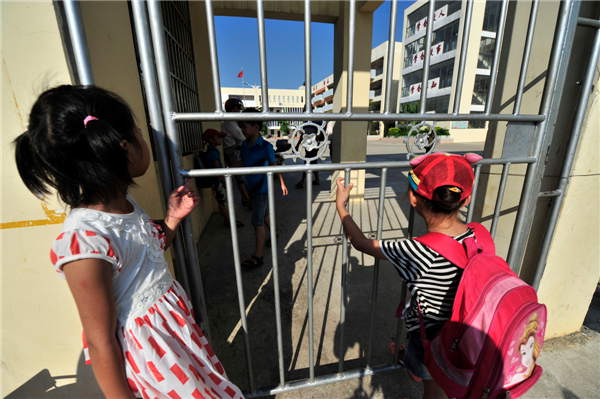
BEIJING, May 17 (Xinhua) -- Chinese banks bought more foreign currency from clients than they sold in April as the market expects the yuan to continue to appreciate, according to a report from China's foreign exchange regulator on Friday.
Individuals and institutions exchanged 134 billion U.S. dollars in foreign currency for yuan through Chinese banks while buying 99.7 billion U.S. dollars in foreign currency from financial institutions in April, said the State Administration of Foreign Exchange.
The surplus of 34.3 billion U.S. dollars, though lower than that in the previous month, marked the eighth straight month for Chinese lenders to see a forex surplus in bank-to-client transactions.
Liu Dongliang, a China Merchants Bank analyst, said the continuous surplus indicates strong market expectation for the yuan's appreciation.
The Chinese currency RMB, or the yuan, has seen its value rise against the U.S. dollar. It has strengthened 972 basis points from the first trading day of the year to a record high on May 9, as compared to the total of 146 points it advanced last year.
Ding Zhijie, head of the School of Banking and Finance at the University of International Business and Economics, said the surplus also indicates huge speculative money inflows.
Zhao Qingming, an expert in international finance, said due to big interest rate spreads between domestic and overseas markets, foreign investors can easily make a profit by simply depositing the speculative capital in Chinese banks, or purchase some wealth management products.
The U.S. Federal Reserve has maintained its benchmark interest rate between 0 to 0.25 percent. In China, the benchmark interest rate is set at 3 percent.
Liu said the speculative money is a big concern. It is hard to identify the money's investment directions. Besides capitalizing on the margin in interest rates, it may also seek higher returns by engaging in Chinese private financing activities that promised an annualized return of 10 percent, or in the property market.
Liu said the large inflows of speculative capital within a short period of time will make it more difficult for the Chinese central bank to handle liquidity, combat inflation and rein in the property market.
Liu also warned that the speculative money may retreat from the Chinese market if the domestic economy continues to slow down and the yuan is believed to be overvalued, or if the U.S. Federal Reserve scales back its quantitative easing program.
















 Deaths prompt concerns over elevator safety
Deaths prompt concerns over elevator safety


![]()
